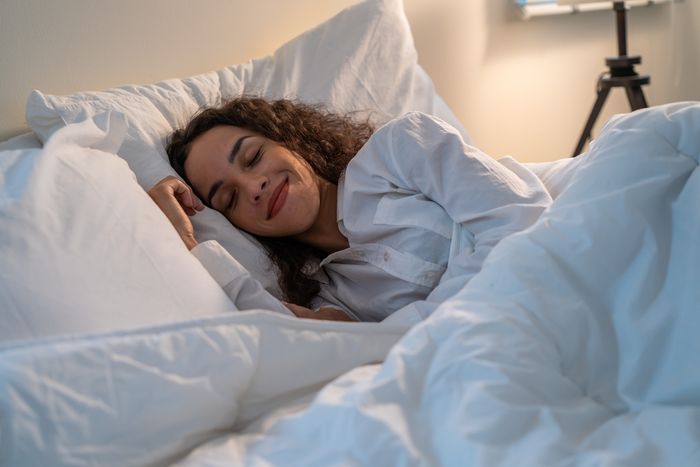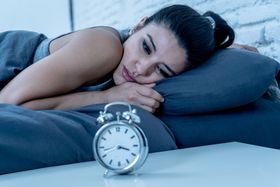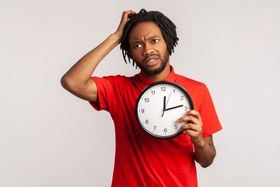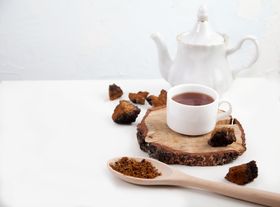CBD and Functional Mushrooms for Sleep: Benefits, Side Effects, Usage, and More
Updated April 14, 2023.

The importance of adequate sleep duration and quality is well known. Sleep deprivation can trigger and exacerbate mental conditions like anxiety, depression, and physical health conditions like diabetes and heart disease. While various natural techniques are proven to improve your sleep quality, sometimes the use of natural sleep aids is also required.
This article looks at two particular components, non-psychoactive cannabidiol (CBD) and functional mushrooms, how they can help you sleep, and how you should go about using them.
How CBD and Functional Mushrooms Could Benefit Sleep
CBD and functional mushrooms are capable of directly improving the quality and duration of sleep, while also aiding sleep through various indirect means.
Directly
The body has a built-in system of receptors (protein structures that respond to certain substances and transmit signals) designed to respond directly to cannabinoids (like CBD), aptly named the endocannabinoid system (ECS). This particular system is thought to modulate various physiological functions in the body. Although researchers aren't entirely sure how exactly CBD can help sleeplessness, studies have shown that it is a well-tolerated sleep aid with a surprising success rate.
The ways functional mushrooms benefit sleep are even less clear than that of CBD. Still, they are primarily thought to result from the powerful components found in all mushroom species, such as polysaccharides, polyphenols, and others. Additionally, different functional mushrooms seem to benefit sleep in different ways, meaning that there is no "best mushroom for sleep." For more info, read our posts about the following functional mushrooms and how they might benefit sleep:
Both CBD and functional mushrooms can benefit sleep on their own; however, our research has suggested that they are better used in combination as CBD appears to reduce sleep latency and make it easier for users to fall asleep, while functional mushrooms appear to improve the quality of that sleep.
Indirectly
Often, poor sleep quality can be a result of several other factors like poor tolerance to medications, environmental disturbances, mood-related disorders, and chronic pain. In contrast, neither CBD nor functional mushrooms can improve every one of these factors, research has suggested that they may be beneficial in dealing with pain and various mood-related disorders.
For more info, read our post about CBD Oil and Functional Mushrooms for Anxiety and Stress Relief.
Best CBD and Functional Mushroom Products for Better Sleep
Knowing which mushrooms are right for you and how to combine them with CBD for optimal effect can be stressful. At Cannabotech, our experts spent over ten years designing our M2CBD formula that combines CBD with certain mushroom extracts and other therapeutic compounds in easy-to-use forms such as tinctures, sprays, and creams. For more info about the specific mushrooms we use and why, read Functional Mushrooms and CBD for Stress and Anxiety Support.
To purchase a specific product, either browse our store or pick from any of the following:
- Beauty Sleep Drops with extra chamomile for improved sleep quality.
- Relax Drops with added chamomile and lavender for better relaxation before bed.
- Uplift Drops with lemon balm to help raise your mood and promote easier sleep.
- Unwind Muscle Rub to help relieve tension in sore muscles and stimulate relaxation.
How to Use Cannabotech Products for Better Sleep
The golden rule for CBD usage is that you should start small and work your way up incrementally until you find what works for you, meaning that there isn't necessarily a "best CBD oil for sleep." Unfortunately, there is no definitive answer here as everyone is different and will react differently to each substance. However, the benefits of functional mushrooms for sleep don't occur through the same mechanisms as pharmaceutical sleeping pills. The benefits of mushrooms tend to accumulate over a prolonged period, meaning that there is no best time of day to take them.
What works for one person will not necessarily work for another, and so it's up to you to use some trial-and-error to figure out what time of day works best for you.
As for the method of application, tinctures operate best when taken sublingually. Although you can add a few drops to a glass of water or other beverage, ingesting them takes comparatively longer to work than sublingual usage and has a reduced bioavailability (the amount of a substance your body can utilise).
Potential Side Effects of CBD and Functional Mushrooms
When buying sleep aids of any kind, there is always a risk of potential adverse reactions, and CBD and functional mushrooms are no different. Although both substances are generally well tolerated by people of all ages, you can never be sure. So you should always check with a doctor if you are unsure of your predispositions and risk factors. Although it is essentially impossible to overdose on CBD or functional mushroom extracts (unless you have an allergy), there are a few side effects to keep in mind.
Documented side effects from CBD include:
- Dry mouth
- Reduced appetite
- Diarrhoea
- Somnolence (drowsiness, sleepiness, or fatigue)
Additionally, CBD exhibits a biphasic effect, meaning that different doses can exhibit different results. This suggests that, although it can be beneficial for conditions such as anxiety and insomnia, taking too much could actually worsen the symptoms. As such, CBD can make you tired and energetic, depending on the optimal dosage. Thankfully, research has suggested that the severity of these side effects is low and ceased after the treatment was stopped, even in children.
Documented side effects from functional mushrooms vary, but can include:
- Gastrointestinal issues (diarrhoea, upset stomach, and vomiting)
- Rash (in some extreme cases, such as Shiitake dermatitis)
It should also be noted that most adverse reactions from mushrooms usually occur in individuals with fungal allergies or when the mushrooms are consumed raw. Additionally, the safety of functional mushrooms over extended periods (longer than one year) has not been sufficiently researched.
Furthermore, extra caution should be shown by the following people:







